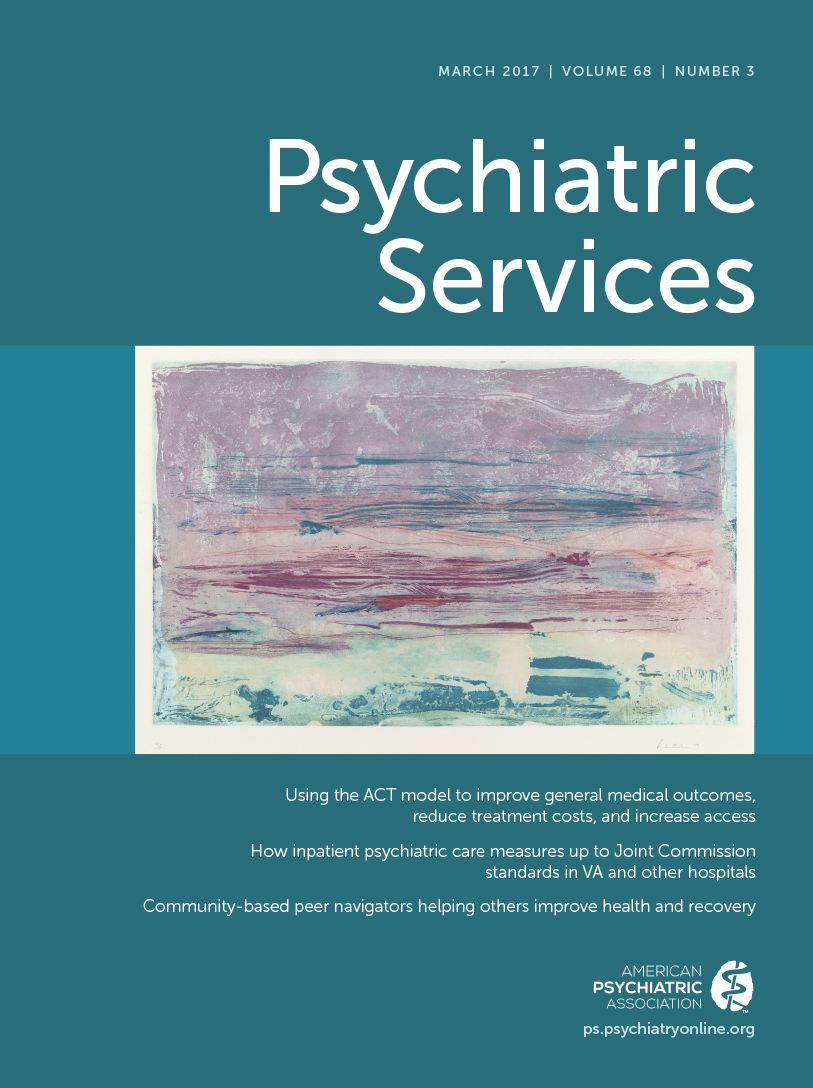Measuring the Quality of VA Care
TO THE EDITOR: Shields and Rosenthal (1) evaluated the Joint Commission’s performance measures for inpatient mental health care and concluded that U.S. Department of Veterans Affairs (VA) hospitals lag behind others. The authors reported that differences in “admission screening for violence risk, substance use, psychological trauma history, and patient strengths . . . . [provide] troubling evidence of the inferior performance of the VA hospitals in terms of psychiatric services, especially in regard to admission screening for trauma” and that this “warrants deeper investigation and potentially regulatory attention.”
We agree that the VA is different but suggest that this difference is a strength. As a department striving for the highest quality of care and for continuous improvement as a core value, we are grateful when investigators point out areas for refinement and provide signals that guide corrective action. The VA has a highly successful program to address polypharmacy and is reviewing policies and practices systemwide on use of seclusion and restraint. Prior to drawing conclusions about the comparative quality of VA inpatient care, investigators need to consider key differences between VA and other programs, including case mix and integration of mental health care.
The VA is a highly integrated health system. In most non-VA settings, admission requires transition to new institutions, new providers, and a new system of health records. In that context, initiating a full set of admission screens is a necessary step. In the VA, however, those entering inpatient care have, as a rule, received VA outpatient services and have been screened annually for trauma and posttraumatic stress disorder, alcohol use problems, and other health factors. A patient’s screening information is available through the electronic health record (EHR) to providers across care settings. Because of these processes, the VA may report less screening on admission because screening is less necessary. The VA already knows these patients and their histories.
Similarly, reportedly low performance on “patients whose postdischarge continuing care plan was transmitted to the next level of care provider upon discharge” may not apply well to the VA. Required information on discharge medications, next level of care, principal discharge diagnoses, and reason for hospitalization is provided for all VA inpatients as part of their discharge summary, rather than as a “care plan,” and carried forward to their outpatient providers as part of the VA’s seamless EHR. For most veterans, there is no need to create a separate plan or to transmit it to outside providers in a separate system.
The Joint Commission measures reviewed in this study were designed to mitigate problems in quality of care inherent in the discontinuous systems that typify most mental health delivery in the United States. By integrating inpatient and outpatient domains unified by a single EHR, the VA achieves unparalleled continuity of mental health care. We are proud of the seamless integration of the largest health care system in the nation. The Joint Commission measures showing differences between VA and others reflect the degree to which our system is successfully integrated.
1 : Quality of inpatient psychiatric care at VA, other government, nonprofit, and for-profit hospitals: a comparison. Psychiatric Services (Epub ahead of print, Oct 17, 2016)Link, Google Scholar



